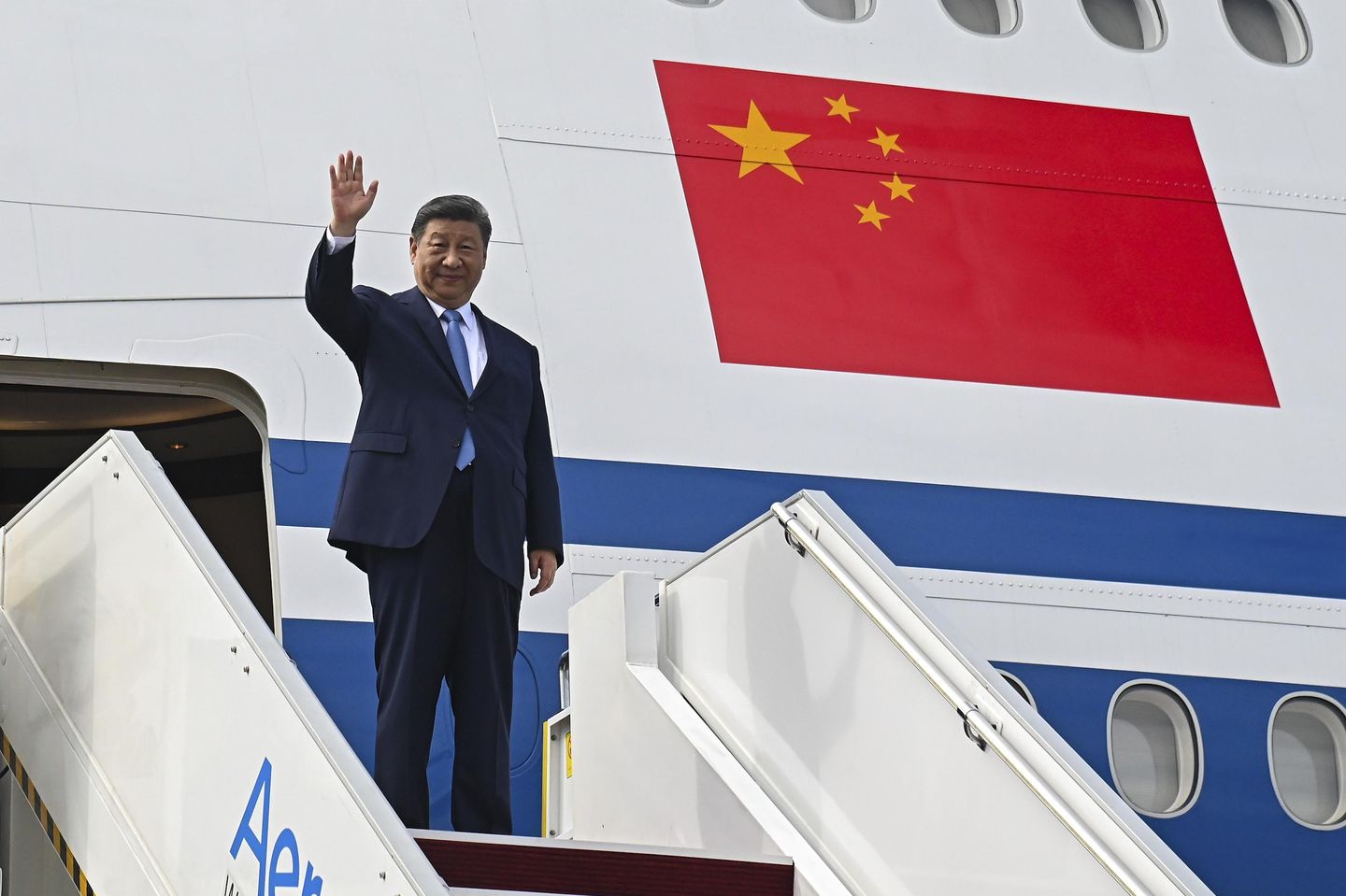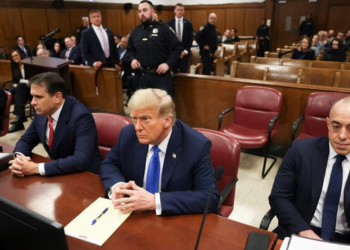
SEOUL, South Korea — Chinese President Xi Jinping wrapped up a three-nation tour of Southeast Asia Friday, taking advantage of President Trump’s highly unpopular tariff offensive to urge intra-Asian fraternity and promote Beijing’s far-flung trade, investment and security strategies in Vietnam, Malaysia and Cambodia.
China’s huge economy and its Belt and Road Initiative, which develops massive infrastructure projects worldwide, largely in the developing world, offer Beijing powerful diplomatic-economic heft in both trade and investment.
In the background of the trip was President Trump’s global tariff offensive, granting Mr. Xi “a windfall opportunity” to engage regional capitals, one expert said.
When tariffs were announced April 2, Vietnam was hit with 46% duties, Malaysia with 24% and Cambodia 49%. All have since been slashed temporarily to 10%, providing negotiating space in the weeks ahead. Duties on China, however, have escalated to 145%.
With U.S.-allied governments in power in Seoul and Tokyo and an anti-Beijing administration entrenched in Taipei, Southeast Asia was likely a more agreeable destination for China’s president than Northeast Asia.
Particularly in Cambodia. There, China has won access to a naval base in the Gulf of Thailand, adjacent to an upcoming canal network linking the gulf to the Mekong River.
Three-nation tour
China and Vietnam are disputing territorial rights in the South China Sea. The last time China’s armed forces fired in anger was a sea-land battle with Vietnamese forces in 1988, and both nations are building outposts on islands and reefs. No related tensions blighted Mr. Xi’s trip — his second to Hanoi since December 2023 — as the two communist parties put on their best faces and the visitor met Vietnamese President Luong Cuong.
April 2025 marks the 50th anniversary of communist North Vietnam’s overthrow of U.S.-supported South Vietnam.
In a swipe at Washington, Mr. Xi called on the two countries to “jointly oppose power politics and unilateralism,” Chinese state broadcaster Xinhua reported. “Trade wars will undermine the international trading system, the stability of the global economic order and the legitimate interests of all countries in the world.”
Bilateral talks were held about upgrading connectivity in rail, road and air transport, ensuring stable supply chains, and expanding cooperation in 5G telecommunications, artificial intelligence and green development.
In Malaysia, Mr. Xi met Prime Minister Anwar Ibrahim. China’s aims in Malaysia, according to the National Committee of the Chinese People’s Political Consultative Conference, were to expand the digital and green economies, AI and industrial chains. Mr. Xi suggested improving rail-sea transport nodes and upgrading Malaysian ports into regional hubs.
At a state banquet, Mr. Ibrahim praised Beijing while implicitly criticizing Washington.
“The rules-based order has been turned on its head — dialogue has yielded to demands, tariffs are imposed without restraint, and the language of cooperation is drowned,” he said.
“In these trying times, the world yearns for steadiness, reliability and purpose. We see this in China’s conduct.”
Mr. Xi hailed regional unity. “Together we will safeguard the bright prospects of our Asian family,” he said.
In Cambodia, Mr. Xi met King Norodom Sihamoni and Prime Minister Hun Manet. Pledging “all weather ties,” the two sides exchanged more than 30 bilateral cooperation documents covering supply chains, AI, development assistance, customs inspection and health services.
The trip’s timing provided a “windfall opportunity … for Xi to exploit,” said Alex Neill, a China expert with Pacific Forum.
“Southeast Asians are considering whether the U.S. can be a trusted friend or partner anymore,” he said. “In Europe, people are saying the global order has been unilaterally torn up by Trump, and in Southeast Asia, Xi presented his vision of a multipolar order.”
Issues are not simply economic. With China increasing its fleet and tightening its grip around Taiwan, strategic competition has spilled into Southeast Asia.
China extends its influence
China is confronting the Philippines in a series of fraught but non-kinetic conflicts to expand its land-sea-air base network in the South China Sea under the lens of global media.
More quietly, Beijing has secured another significant “bases and places” win in Cambodia.
Ream, a Cambodian naval facility that has been upgraded by China since 2020, was activated in a ceremony on April 5, Cambodian media reported, with officials saying it was open to all countries.
However, experts believe China has secured privileged access. Chinese warships have docked there, Chinese personnel were present at the opening and the base hosts a joint logistics facility. Joint China-Cambodia naval drills kicked off immediately after the opening.
Ream, on the Gulf of Thailand, is the second overseas port China’s military has gained access to, after Djibouti, in the Horn of Africa. Satellite imagery suggests Ream followed Djibouti’s design blueprint, Mr. Neill said, with similar fuel-, munition- and supply-facility layouts. Its deep-water pier can accommodate major surface warships.
Ream sits on the Gulf of Thailand; the latter country is a U.S. treaty ally. It potentially offers China a forward-deployed presence with power-projection potential toward the highly strategic Malacca Strait, which links the Indian Ocean and the Bay of Bengal.
Moreover, Ream is set to offer an entry point to the Mekong River, which runs through China, Myanmar, Laos, Thailand, Cambodia and Vietnam.
A major, commercial port-canal project is planned adjacent to the base, Mr. Neill said. The 111-mile, $1.7 billion Funan Techo canal, to be built by China’s Road and Bridge Corporation by 2028, will stretch from the coast to the Mekong, close to Phnom Penh, offering Ream river access to inland Southeast Asia.
Thanks to these multidimensional geographical advantages, Ream offers China “a regularized presence … on a very important piece of maritime real estate,” Mr. Neill said.












